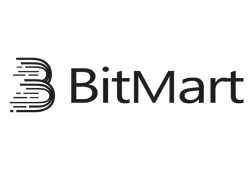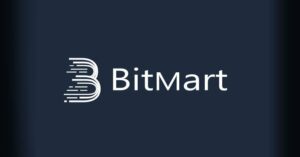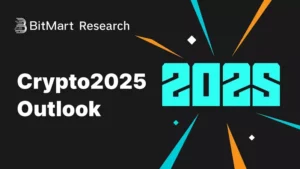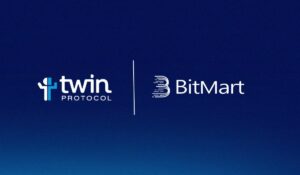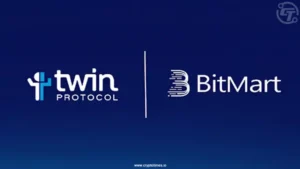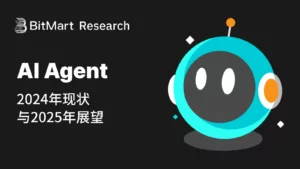When it comes to choosing a cryptocurrency exchange, traders are often faced with the challenge of selecting the platform that best suits their needs. Among the most popular and widely used exchanges in the world are Bitmart and Binance. This article aims to provide an in-depth comparison of bitmart vs binance, analyzing various critical factors such as user experience, trading fees, security features, supported cryptocurrencies, mobile app functionality, liquidity, customer support, and regulatory compliance. Whether you’re a novice or an experienced trader, understanding these differences will help you make an informed decision about which platform aligns best with your trading goals.
Bitmart vs Binance: A Comprehensive Comparison
In the world of crypto trading, both Bitmart and Binance have established themselves as significant players, each offering a range of features tailored to different types of traders. While Binance is often regarded as the largest and most versatile exchange globally, Bitmart has gained popularity for its user-friendly interface and specific offerings. Comparing these platforms involves examining multiple dimensions that influence usability, safety, cost-efficiency, and overall trading experience.
This section provides an overview of what each platform offers, setting the stage for more detailed analysis in subsequent sections. Understanding their core strengths and weaknesses helps in making a strategic choice aligned with individual trading needs.
User Experience: Bitmart vs Binance
The first impression of any trading platform is primarily shaped by its user experience (UX). Ease of navigation, intuitiveness, aesthetic appeal, and customizability all contribute to how effectively traders can operate on an exchange. When comparing bitmart vs binance, it’s essential to evaluate how these elements come into play and influence daily trading activities.
Interface Design and Navigation
Both Binance and Bitmart boast modern, clean interfaces designed to cater to different user levels. Binance’s platform is feature-rich, with a complex layout that appeals to seasoned traders who require access to advanced tools. Its dashboard offers numerous customization options, enabling users to tailor their trading environment according to their preferences. However, this complexity can be overwhelming for beginners.
On the other hand, Bitmart emphasizes simplicity and ease of use. Its interface is streamlined, with intuitive menus and straightforward transaction pathways. New users often find Bitmart less intimidating, allowing them to execute trades quickly without extensive prior knowledge. For experienced traders, while the interface may seem limited compared to Binance, it still provides access to essential trading functions efficiently.
Accessibility and Usability
Accessibility extends beyond design, encompassing how easily users can access functionalities across devices. Binance offers a robust web platform complemented by native mobile apps for iOS and Android, ensuring traders can stay connected anywhere. The platform’s responsiveness and speed are generally excellent, even during high traffic periods.
Bitmart also provides dedicated mobile applications, focusing heavily on mobile-first experiences. Its apps are optimized for quick trades, managing portfolios, and monitoring market movements on the go. Although they might lack some advanced features of Binance’s app, they deliver a smooth and user-centric experience.
Additional User Experience Factors
Customer onboarding processes and educational resources greatly influence user experience. Binance has a comprehensive onboarding process with verification steps, but it can be lengthy, especially for new users. It also offers extensive tutorials, webinars, and community engagement to ease the learning curve.
Bitmart’s onboarding is relatively straightforward, with faster registration processes and simplified KYC procedures in certain regions. Educational materials are available but are not as extensive as Binance’s offerings. Users seeking minimal hassle may prefer Bitmart’s approach.
Personal Analysis
While Binance excels in offering advanced trading tools and customizable interfaces suitable for professional traders, Bitmart’s focus on simplicity makes it an attractive choice for newcomers. The trade-offs between complexity and ease of use hinge on individual preferences—experienced traders may favor Binance’s depth, whereas casual traders may appreciate Bitmart’s streamlined approach. Ultimately, a platform that offers a seamless, reliable, and intuitive user experience enhances trading efficiency and satisfaction.
Trading Fees: Bitmart vs Binance Explained
Trading fees are a crucial consideration for any trader as they directly impact profitability. Both Bitmart and Binance employ fee structures that incentivize higher trading volumes, but there are notable differences in their fee models, discounts, and additional charges.
Fee Structures and Models
Binance operates a tiered fee structure based on the user’s 30-day trading volume and Binance Coin (BNB) holdings. Its standard spot trading fee starts at 0.1%, with discounts available for high-volume traders and BNB balance holders. Margin trading and futures trading incur different fee rates, often lower for high-volume users.
Bitmart’s fee model is straightforward, typically charging 0.75% on spot trades, with discounts for VIP customers and those holding a certain amount of their native token, Bmxt. While somewhat higher than Binance’s base fees, Bitmart compensates by providing occasional promotional fee reductions.
Deposit and Withdrawal Fees
Deposit fees are generally absent on both platforms, encouraging deposits through free transfers. Withdrawal fees differ based on the blockchain network; Binance adjusts these dynamically depending on network congestion, often providing competitive rates. Bitmart’s withdrawal fees are transparent and fixed, but sometimes slightly higher or lower depending on the cryptocurrency.
Fee Transparency and Hidden Costs
Transparency is vital, particularly regarding potential hidden costs. Binance clearly displays all applicable fees throughout the trading process, including maker and taker fees, futures fees, and margin interest rates. It also offers a fee calculator for precise estimations.
Bitmart also maintains transparency, listing all fees upfront on its website and within the platform. However, traders should always review the latest fee schedules as they may change periodically.
Personal Analysis
For active traders, Binance’s fee structure offers substantial savings through discounts and high-volume tiers, making it economically appealing. In contrast, Bitmart’s simpler fee model is easier for beginners to understand but might be less cost-effective for large-volume traders. Considering trading frequency and volume, traders should calculate the fee impact over time to determine which platform offers better value.
Security Features: Bitmart vs Binance
Security remains the foremost concern when choosing a cryptocurrency exchange. Protecting digital assets from hacking, fraud, and unauthorized access is paramount. Both Bitmart and Binance implement robust security protocols, but their approaches and track records vary.
Security Protocols and Technologies
Binance employs industry-standard security measures including two-factor authentication (2FA), withdrawal whitelist, device management, and regular security audits. They also have an advanced SAFU fund (Secure Asset Fund for Users), which serves as an emergency insurance reserve for user assets in case of breaches.
Bitmart also uses 2FA, cold storage for the majority of assets, and anti-phishing codes. Their platform incorporates multi-layer security systems, but the company experienced a notable hack in December 2021, resulting in significant asset losses for some users.
Response to Security Incidents
Binance has demonstrated proactive responses to security threats, investing heavily in cybersecurity infrastructure and updating protocols regularly. They maintain transparency about security breaches and recovery measures, which helps build user confidence.
Bitmart’s past incident raised questions about its security resilience. While the company responded swiftly and compensated affected users, the event underscored the importance of ongoing security upgrades and vigilant monitoring.
Insurance and Fund Safeguards
Binance’s SAFU fund acts as a safeguard for users by covering certain losses, which adds an extra layer of reassurance. It signals the exchange’s commitment to user protection and financial stability.
Bitmart does not publicly disclose a similar insurance fund, which may cause apprehension among risk-averse traders. Users should consider this aspect when evaluating long-term safety.
Personal Analysis
While both exchanges employ essential security protocols, Binance’s larger scale, continuous investment, and transparent incident management position it as a slightly safer option. Nonetheless, no platform is immune to risks; traders should always enable 2FA, use hardware wallets for large holdings, and remain vigilant against phishing attempts.
Supported Cryptocurrencies: Bitmart vs Binance
The range of cryptocurrencies supported by an exchange is fundamental for traders looking to diversify their portfolio or access specific tokens. Here, we compare bitmart vs binance in terms of supported cryptocurrencies, token listing policies, and innovative offerings.
Cryptocurrency Listings and Variety
Binance is renowned for its extensive selection, supporting thousands of cryptocurrencies—including major coins, altcoins, stablecoins, DeFi tokens, and NFTs. It continuously updates its listings, often launching new tokens rapidly after initial coin offerings (ICOs) or project partnerships.
Bitmart, while smaller, still offers a broad spectrum of cryptocurrencies, including popular coins like BTC, ETH, and USDT, alongside numerous altcoins and tokens from emerging projects. The exchange tends to focus on promising, high-growth tokens, which can be appealing for traders seeking early access.
Unique Tokens and DeFi Support
Binance’s Binance Smart Chain (BSC) ecosystem expands accessible tokens and decentralized finance (DeFi) opportunities, providing integration with its own DeFi projects and launchpads. This allows traders to participate in staking, yield farming, and other DeFi activities seamlessly.
Bitmart offers access to a variety of tokens via its platform, but its DeFi integrations are less extensive. The emphasis is on spot trading, with fewer avenues for decentralized finance engagement directly within the exchange.
Listing Policies and Fairness
Binance’s listing process is rigorous, often requiring project teams to meet strict criteria, but it is also known for rapid additions that sometimes draw criticism over due diligence. This fast-paced approach benefits traders seeking new tokens but raises concerns about project quality.
Bitmart’s listing policy emphasizes thorough review and quality control, aiming to avoid scams and poor-quality tokens. This cautious approach may limit the number of tokens listed but ensures safer trading options.
Personal Analysis
Traders prioritizing access to a wide variety of tokens, especially newer DeFi and NFT projects, will likely favor Binance. Those interested in a curated selection with rigorous vetting might prefer Bitmart’s more conservative approach. The choice depends on the trader’s appetite for risk and desire for diversification.
Mobile App Functionality: Bitmart vs Binance
Given the importance of mobility in modern trading, the functionality, stability, and features of mobile apps significantly influence the overall trading experience. Let’s analyze how bitmart vs binance compare on this front.
App Design and User Interface
Binance’s mobile app provides a comprehensive experience mirroring its desktop platform. It features advanced charting tools, real-time alerts, and easy navigation through various trading markets. The interface is polished, allowing for quick execution of trades, order management, and portfolio tracking.
Bitmart’s app is designed with a focus on simplicity and speed. Its interface is less cluttered, facilitating quick trades on the move. While it lacks some advanced analytics, the app remains user-friendly and responsive.
Feature Set and Tools
Binance’s app supports spot trading, futures, options, staking, savings, and a suite of other features. Traders can access detailed charts, technical indicators, and automated trading options like API integrations directly from their smartphones.
Bitmart offers core trading functions, account management, and basic charting tools. It also supports fiat-to-crypto transactions, making it convenient for users to deposit and withdraw funds. However, it does not currently offer the range of derivatives or advanced analytical tools found on Binance.
Stability and Performance
Both apps perform well under typical conditions, but Binance’s larger infrastructure sometimes results in occasional slowdowns during peak times or high-volatility events. Their servers are optimized for stability, but heavy traffic can cause delays.
Bitmart’s app generally maintains stability, especially given its smaller user base. Updates and bug fixes are rolled out regularly to ensure smooth operation, though some users report occasional glitches.
Security and Authentication
Both apps utilize biometrics (fingerprint/face recognition) and 2FA for login and transaction authorization. Binance’s app includes additional security layers, reflecting its larger security infrastructure.
Personal Analysis
For traders requiring advanced features and comprehensive control from their mobile devices, Binance’s app is superior. However, casual traders or beginners may prefer Bitmart’s straightforward, fast-access app. Both platforms prioritize security, but users should always enable multi-factor authentication and remain cautious of phishing attempts.
Liquidity and Trading Volume: Bitmart vs Binance
Liquidity and trading volume are crucial indicators of an exchange’s health and ability to execute large trades without slippage. High liquidity ensures tight spreads and efficient price discovery, which benefits all levels of traders.
Market Depth and Order Book Size
Binance consistently ranks as the world’s largest exchange by trading volume, with billions of dollars traded daily. This immense liquidity translates into narrow spreads and rapid order execution across most trading pairs.
Bitmart’s trading volume is significantly lower but still substantial relative to many smaller exchanges. Its liquidity is sufficient for retail traders executing moderate trades but may struggle to accommodate large institutional orders without impacting prices.
Trading Volume Data
| Platform | Daily Trading Volume (Approximate) | Notable Markets |
|---|---|---|
| Binance | Several billion USD | BTC/USDT, ETH/USDT, BNB/BTC, DeFi tokens |
| Bitmart | Hundreds of millions USD | BTC/USDT, ETH/USDT, BUSD/USDT |
Note: Data varies daily; check official sources for current metrics.
Impact on Trading Experience
High liquidity on Binance enables traders to enter and exit positions swiftly and profitably, especially important for day traders and scalpers. Conversely, lower liquidity on Bitmart can result in higher spreads and slippage, which traders should consider when executing large orders.
Personal Analysis
If your trading strategy relies heavily on quick execution and minimal price impact, Binance’s superior liquidity is advantageous. For casual trading or smaller volumes, Bitmart’s liquidity is usually adequate, but awareness of potential slippage is essential.
Customer Support: Bitmart vs Binance
Reliable customer support can save traders from headaches related to account issues, transaction problems, or technical difficulties. Comparing bitmart vs binance reveals differences in support channels, responsiveness, and quality.
Support Channels and Availability
Binance offers multiple support options, including live chat, email, and a comprehensive help center with FAQs and guides. During peak times, live chat provides immediate assistance, although response times can fluctuate.
Bitmart provides customer support via email, ticket submissions, and a help desk. It also has a chatbot for common inquiries, but response times can be longer, especially during periods of high demand.
Quality of Support and Responsiveness
Binance’s large support team and extensive documentation allow for reasonably quick resolutions. However, the sheer volume of queries can sometimes lead to delays. Binance also maintains active social media channels for community engagement and issue resolution.
Bitmart’s support quality varies; some users report satisfactory experiences, while others note delays and unresolved issues. Its smaller support team may struggle during surges in user activity.
Issue Resolution and User Satisfaction
Faster issue resolution fosters trust and user retention. Binance’s proactive communication, frequent updates, and dedicated support staff contribute positively to user satisfaction.
Support on Bitmart is improving but still faces challenges in maintaining consistent quality at scale, which could affect user confidence in urgent situations.
Personal Analysis
For traders who prioritize prompt and reliable support, Binance’s extensive support infrastructure generally offers a better experience. However, users should always keep backup plans, like community forums and self-help resources, ready to mitigate potential delays.
Regulatory Compliance: Bitmart vs Binance
Regulatory oversight impacts platform legitimacy, user safety, and legal standing. As regulators worldwide increase scrutiny on crypto exchanges, understanding each platform’s compliance status is vital.
Licensing and Jurisdiction
Binance operates in multiple jurisdictions with varying degrees of regulation; it has obtained licenses in several countries and works to adhere to local laws. Nonetheless, it has faced regulatory challenges in regions like the UK, Japan, and the US, leading to adjustments in services offered.
Bitmart is registered in the Cayman Islands but operates globally with different regional restrictions, complying with local laws where possible. Its regulatory footprint is less prominent than Binance’s.
Anti-Money Laundering (AML) and Know Your Customer (KYC)
Both platforms enforce AML and KYC procedures, although Binance’s requirements are often more stringent, especially for fiat transactions. Binance adheres to global standards, implementing identity verification, transaction limits, and monitoring.
Bitmart’s KYC process is generally straightforward but varies by region. Some accounts can operate with minimal verification, raising concerns about compliance and abuse.
Legal Risks and Future Outlook
Regulatory developments could impact both platforms, potentially restricting operations or imposing fines. Binance’s diverse licensing efforts aim to navigate complex legal landscapes, but ongoing scrutiny remains.
Bitmart’s smaller size might pose fewer regulatory hurdles presently, but its long-term compliance trajectory depends on evolving legal environments.
Personal Analysis
Traders seeking assurance of platform legality should favor exchanges with clear licensing and adherence to regulations. Binance’s extensive compliance measures, despite challenges, signal a proactive approach, while Bitmart’s less prominent regulatory profile warrants caution.
Conclusion: Which is Better, Bitmart or Binance?
Choosing between bitmart vs binance fundamentally depends on individual trading priorities, experience level, and risk appetite. Binance’s extensive cryptocurrency support, advanced trading tools, superior liquidity, and robust security infrastructure make it a favored choice for serious traders and institutions. Its comprehensive features empower users to explore a wide array of financial products within a trusted environment.
Conversely, Bitmart stands out for its user-friendly interface, simplified fee structure, and straightforward onboarding, catering well to newcomers and casual traders. While it may lack some of Binance’s advanced features and liquidity depth, it provides an accessible platform with a focus on ease of use.
In summary, Binance is better suited for professional traders seeking maximum flexibility, liquidity, and innovation, while Bitmart offers an appealing alternative for beginners or those prioritizing simplicity and quick onboarding. Both platforms have their merits, but careful consideration of your trading style and needs will guide you toward the optimal choice.
In conclusion, understanding the nuances between *bitmart vs binance—from user experience and fees to security and regulation—is essential for making an educated decision. Both exchanges serve different segments of the trading community, and aligning their strengths with your personal requirements will enhance your trading journey.*
